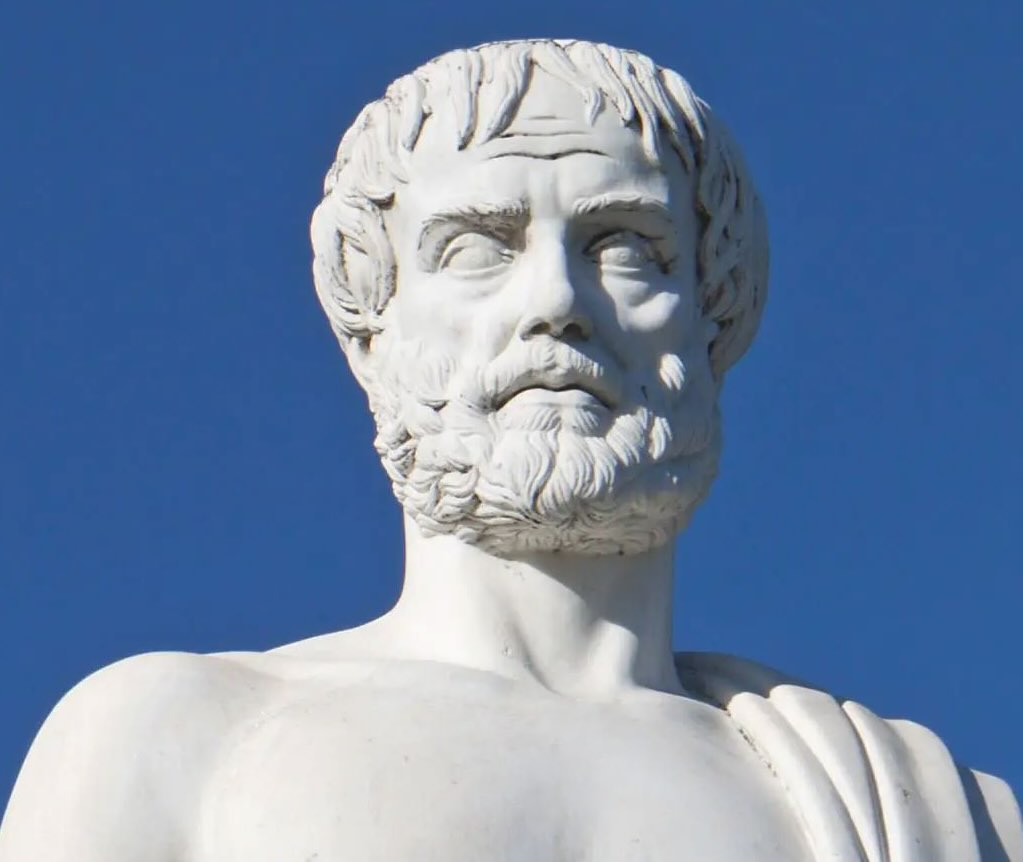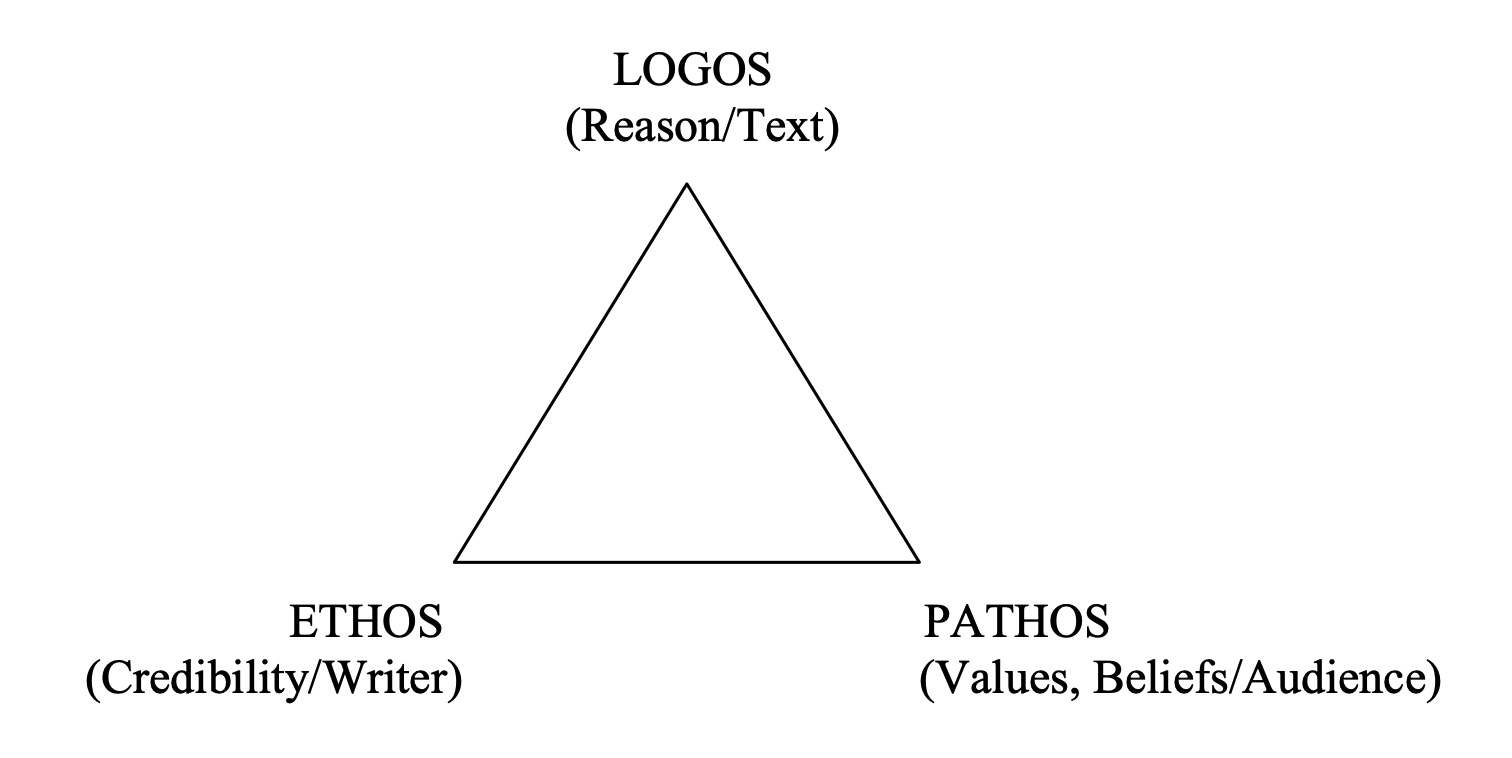亞理斯多德 Aristotle: 修辭學 The Art Of Rhetoric
演講的流派 The Genres Of Oratory
第二章 修辭術的定義 The Definition Of Rhetoric

修辭術的定義可以這樣下:一種能在任何一個問題上找出可能的說服方式的功能。
Rhetoric is considered to be capable of intuition of the persuasiveness of, so to speak, the given.
有的或然式證明不屬於藝術本身,有的或然式證明屬於藝術本身。 所謂“不屬於藝術本身的或然式證明”,指不是由我們提供的,而是現成的或然式證明,如見證、拷問、契約,所謂“屬於藝術本身的或然式證明”,指所有能由法則和我們的能力提供的或然式證明。
Now, among proofs some belong to the art and some do not. By those that do not I mean all that are not contrived by us but preexist, such as witnesses, tortures, depositions and such like. By those that do I mean all that can be established by us through the method. Of the two, we must exploit the former and invent the latter.
由演說提供的或然式證明分三種。
第一種是由演說者的性格造成的,
第二種是由使聽者處於某種心情而造成的,
第三種是由演說本身有所證明或似乎有所證明而造成的。
Of those proofs that are furnished through the speech there are three kinds.
Some reside in the character of the speaker[ethos 性格],
some in a certain disposition of the audience[pathos 心情] and
some in the speech itself[logos 演說本身],through its demonstrating or seeming to demonstrate.

當演說者的話令人相信的時候,他是憑他的性格來說服人,因為我們在任何事情上一般都更相信好人,由於這個緣故,我們對於那些不精確的、可疑的演說,也完全相信。但是這種相信應當由演說本身引起,而不應當來源於聽者對演說者的性格預先有的認識。
Proofs from character are produced, whenever the speech is given in such a way as to render the speaker worthy of credence – we more readily and sooner believe reasonable men on all matters in general and absolutely on questions where precision is impossible and two views can be maintained. But this effect too must come about in the course of the speech, not through the speaker’s being believed in advance to be of a certain character. Unlike some experts, we do not exclude the speaker’s reasonable image from the art as contributing nothing to persuasiveness. On the contrary, character contains almost the strongest proof of all, so to speak.
有些修辭學作者在他們的課本中認為演說者的善良品質無補於他的說服力,這個說法不合乎事實,其實演說者的性格可以說是最有效的說服手段。當聽眾的情感被演說打動的時候,演說者可以利用聽眾的心理來產生說服的效力,因為我們在憂愁或愉快、友愛或增恨的時候所下的判斷是不相同的,正如我們所說的,惟有這種事情是今日的修辭學作者所注意的。
Proofs from the disposition of the audience are produced whenever they are induced by the speech into an emotional state. We do not give judgement in the same way when aggrieved and when pleased, in sympathy and in revulsion. (It is this aspect alone that we are claiming excites the interest of contemporary experts.) There will be a clarification of each such proof, when we discuss the emotions.
最後,當我們採用適合於某一問題的說服方式來證明事情是真的或似乎是真的時候,說服力是從演說本身產生的。
Finally, proof is achieved by the speech, when we demonstrate either a real or an apparent persuasive aspect of each particular matter.
【文本來源 - 亞理斯多德: 修辭學 (羅念生譯),上海人民出版社,2005, Page 23-24
Aristotle: The Art Of Rhetoric, Translated With An Introduction And Notes By H. C. Lawson-Tancred,
119-121】

